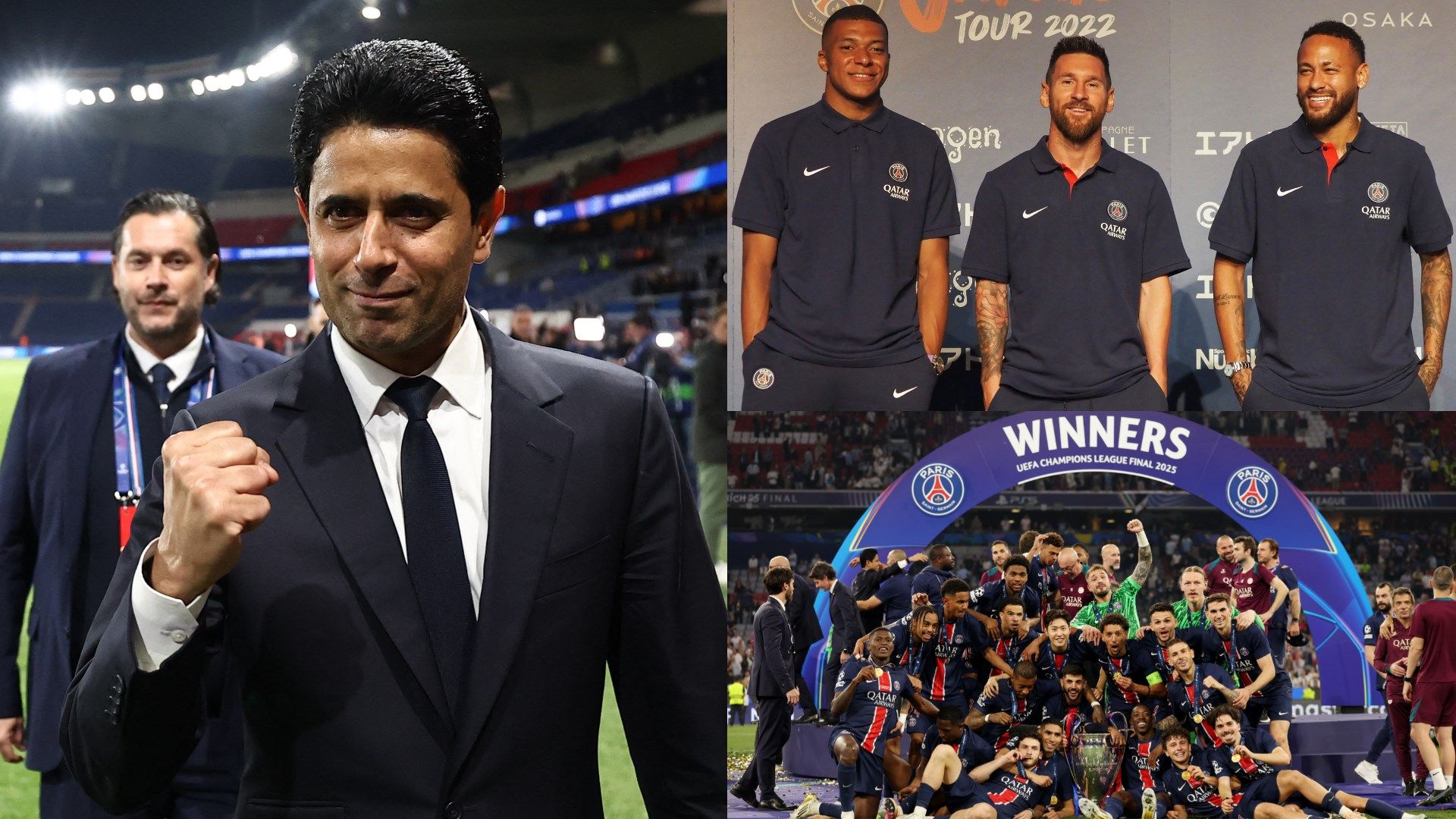Sources: 
Paris Saint-Germain’s president,
Nasser al-Khelaifi, was notably seen sitting beside UEFA chief
Aleksander Ceferin at the Champions League final, a moment that has reignited discussions about
sportswashing in football.
PSG, owned by
Qatari Sports Investments (QSI), has achieved remarkable success, but critics argue that the club’s state-backed financial muscle provides an
unfair advantage over traditionally financed teams. This dynamic fuels ongoing debate about the influence of state actors in European football.
Al-Khelaifi’s roles extend beyond PSG; he is also the chair of the
beIN media group, a key broadcaster in football, and heads the
European Clubs Association. His presence alongside Ceferin at such a high-profile event underscores the intertwined nature of football governance and commercial interests.
The origins of QSI’s investment in PSG trace back to a pivotal meeting in November 2010 at the Élysée Palace involving French President Nicolas Sarkozy, UEFA’s then-president Michel Platini, and Qatar’s Crown Prince Tamim al-Thani. This meeting preceded Qatar’s successful bid to host the 2022 World Cup, highlighting the strategic positioning of Qatari influence in global football.
“On the pitch PSG are what a football club should be,” but the broader context remains contentious, with many viewing the club’s rise as emblematic of sportswashing, where sporting success is used to polish a nation’s image.
This intersection of sport, politics, and media continues to provoke debate about fairness, governance, and the true cost of football’s globalization.
Sources: 
PSG president Nasser al-Khelaifi was seen alongside UEFA chief Aleksander Ceferin at the Champions League final, sparking debate over sportswashing. Owned by Qatari Sports Investments, PSG’s success raises questions about state-backed advantages in football amid ongoing scrutiny of Qatar’s influence in the sport.

